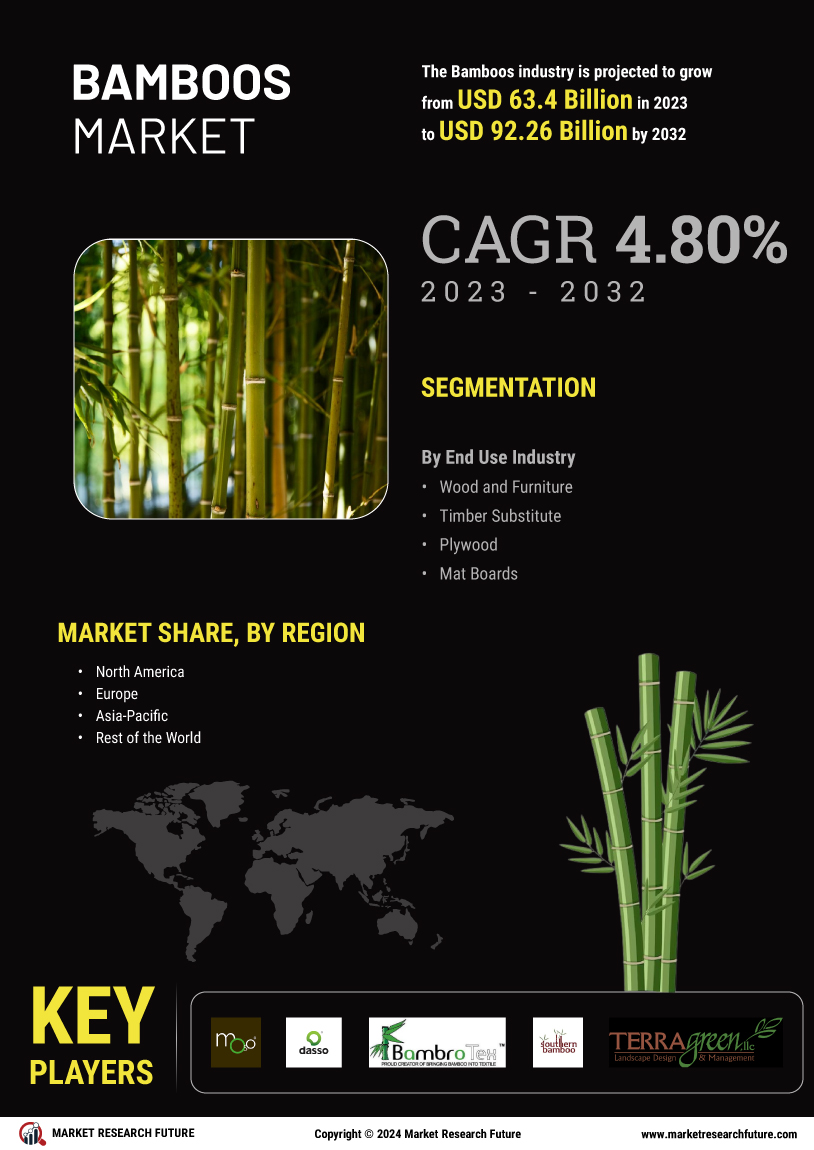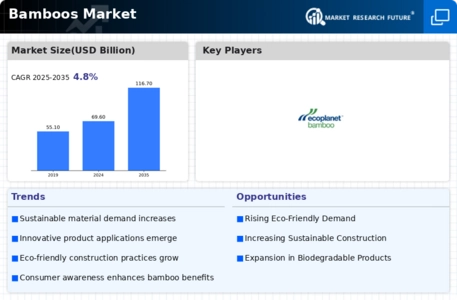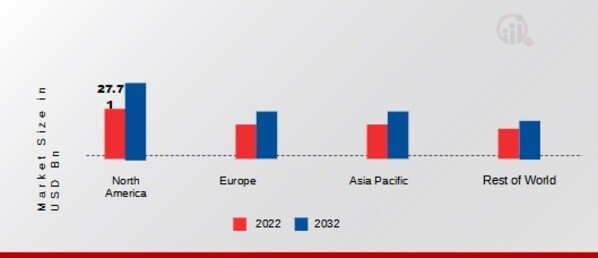Sustainable Material Demand
The increasing global emphasis on sustainability drives the demand for eco-friendly materials, including bamboo. As consumers and industries seek alternatives to plastic and non-renewable resources, bamboo emerges as a viable option due to its rapid growth and renewability. The Global Bamboos Market Industry benefits from this trend, with bamboo being utilized in various applications such as construction, textiles, and packaging. The market is projected to reach 69.6 USD Billion in 2024, reflecting a growing recognition of bamboo's environmental advantages. This shift towards sustainable materials is likely to bolster the industry's growth in the coming years.
Construction Industry Growth
The construction sector's expansion significantly influences the Global Bamboos Market Industry, as bamboo is increasingly recognized for its strength and versatility. Architects and builders are incorporating bamboo into eco-friendly designs, leveraging its lightweight properties and aesthetic appeal. This trend aligns with the global push for sustainable building practices, where bamboo serves as an alternative to traditional materials. The market's value is expected to reach 116.7 USD Billion by 2035, indicating a robust growth trajectory. The integration of bamboo in construction projects not only enhances sustainability but also contributes to the industry's overall economic performance.
Innovative Product Development
Innovation within the Global Bamboos Market Industry is a key driver, as manufacturers explore new applications and product designs. This includes bamboo-based composites, furniture, and biodegradable packaging solutions. Companies are investing in research and development to enhance bamboo's properties, making it suitable for diverse markets. The introduction of innovative products not only meets consumer demand for sustainable options but also opens new revenue streams for businesses. As the market evolves, the potential for bamboo to penetrate various sectors increases, suggesting a promising outlook for the industry.
Government Support and Policies
Government initiatives promoting sustainable practices significantly impact the Global Bamboos Market Industry. Policies aimed at reducing carbon footprints and encouraging the use of renewable resources create a favorable environment for bamboo cultivation and utilization. Various countries are implementing subsidies and incentives for bamboo farming, which enhances its market viability. This support is expected to drive the market's growth, with projections indicating a CAGR of 4.8% from 2025 to 2035. As governments recognize bamboo's potential in achieving sustainability goals, the industry is likely to experience increased investment and development.
Consumer Awareness and Education
Rising consumer awareness regarding environmental issues plays a crucial role in shaping the Global Bamboos Market Industry. As individuals become more informed about the benefits of bamboo, including its low environmental impact and versatility, demand for bamboo products increases. Educational campaigns and marketing efforts highlight bamboo's advantages, influencing purchasing decisions. This heightened awareness is likely to contribute to the market's growth, as consumers actively seek sustainable alternatives. The industry's ability to adapt to changing consumer preferences will be essential in maintaining its momentum in the coming years.



 Source: Primary Research, Secondary Research, Market Research Future Database and Analyst Review
Source: Primary Research, Secondary Research, Market Research Future Database and Analyst Review







